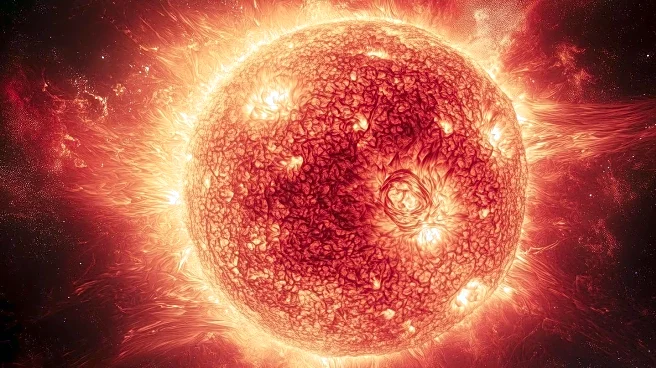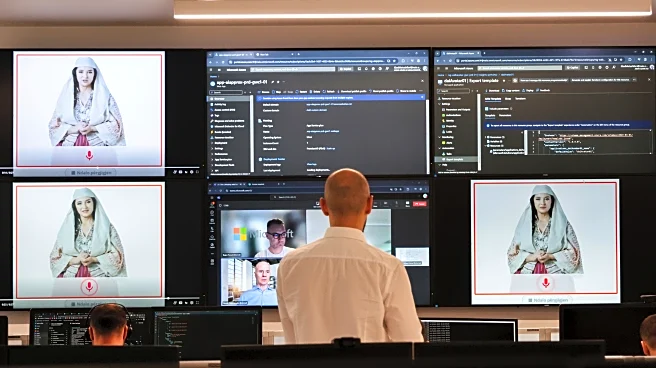What's Happening?
A total lunar eclipse is set to occur overnight on Sunday, September 7, into the early hours of Monday, September 8, 2025. This celestial event will provide a spectacular 'blood moon' display visible to skywatchers across Asia, Western Australia, and Europe. The eclipse will reach its maximum phase at 5:11 PM EDT (21:11 GMT) on September 7, when the moon will be fully engulfed in Earth's dark umbral shadow. This totality phase will last approximately 82 minutes, offering a breathtaking view of the moon's transformation. Key viewing times vary across different regions, with London, Paris, and Cape Town experiencing the eclipse from 7:30 PM to 8:52 PM, while cities like Mumbai, Bangkok, Beijing, and Hong Kong will witness it later in the night. Nearly 77% of the global population will have the opportunity to observe the entire total phase of this eclipse, with free livestreams available for those unable to view it in person.
Why It's Important?
This total lunar eclipse is significant as it provides a rare opportunity for millions of people worldwide to witness a natural phenomenon that showcases the intricate dynamics of celestial bodies. The 'blood moon' effect, where the moon takes on a reddish-orange hue, is caused by Earth's atmospheric conditions and offers a unique visual spectacle. Such events not only captivate the public's imagination but also serve as a reminder of the interconnectedness of our planet within the solar system. For astronomers and enthusiasts, this eclipse presents a chance to study the moon's surface and atmospheric effects in detail. Additionally, the timing of the eclipse, occurring just days before the moon reaches its perigee, means the moon will appear slightly larger, enhancing the visual experience.
What's Next?
As the eclipse approaches, preparations for public viewings and educational events are likely to increase, with observatories and science centers organizing special programs to engage the public. The availability of livestreams will also allow a broader audience to participate in the event, potentially sparking interest in astronomy and science education. Following the eclipse, scientists may analyze data collected during the event to gain insights into lunar and atmospheric phenomena. The next total lunar eclipse visible from similar regions is expected to occur in several years, making this event a rare and valuable opportunity for observation.
Beyond the Headlines
The cultural and historical significance of lunar eclipses has been profound across various civilizations, often associated with myths and legends. In modern times, such events continue to inspire awe and curiosity, bridging the gap between science and culture. The 'blood moon' phenomenon, in particular, has been a subject of fascination and sometimes superstition, highlighting the enduring impact of celestial events on human societies.









